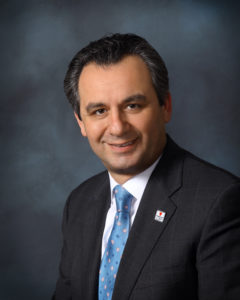This article continues a series of communications from GGA Partners to help private club leaders address challenges confronting their businesses and their employees as a result of the global health crisis. Today, in the first of two articles discussing financial stewardship, founding partner Stephen Johnston outlines the guiding principles for being a prudent financial steward.
Despite the opinions of pundits and experts parading before our television screens, no one can accurately predict how long this pandemic will last or its economic impact. By the same token, it’s impossible to anticipate every challenge club leaders will face in the days ahead. But we can say with certainty that long-term financial stability is an issue confronting every club leader. Those who evaluate the challenge and develop a strategy with both short-term and long-term plans give their clubs the greatest opportunity for success.
From our perspective, actions in these uncertain times should follow these guiding principles:
1. Fairness. Prior to a final decision, step back and ask yourself if the anticipated action is fair for all parties, starting with members and the employees. This crisis will pass, and people will remember how they were treated.
2. Transparency. Do not take anything for granted, especially when it comes to sharing information with employees and communicating with membership. It is important for members to understand and appreciate the conscientious approach and the lengths taken to ensure the viability of their club. Video conferencing and electronic pulse surveys make timely communications and opinion convenient and efficient.
3. Value. It is important for members to understand the club carefully considers the value members receive for their fees, dues and other financial support of the club. The value for money proposition for each club and each member is different; “we’re doing what other clubs are doing” discounts this uniqueness.
4. Ownership. Ensuring members maintain their club participation and pride of ownership during challenging times is critical. Maintaining a sense of ownership in the club will help members appreciate the difficult decisions being made in the face of unprecedented circumstances.
5. Right Things Right. Make sure each critical action or decision is conscientiously considered and prudently implemented. By considering the long-term economic and social consequences of your decisions, leaders often realize that efficiency and cost savings are not automatically the top priority.
6. Think Long-Term. Short-term planning and tactics are the priority. But before executing, assess how the short-term actions affect the long-term plan and vision for the club. Always measure the impact any action will have on cash preservation, club value, member and employee satisfaction. Adjustments to the short-term plan may be necessary to reduce the impact on your long-range strategic plan.
7. Preparedness. It’s easy to say we should be prepared for the worst, but it’s impossible to anticipate every calamity. What we can do is make sure all the club’s business information and resources are readily available. This generally means putting in that extra hour or two each week to stay organized. As we prepare for reopening and the new normal, develop a reopening plan and adjust this daily based on new information which comes available.
8. Listening. We are a firm believer in the importance of empowering the general manager to make critical business decisions. We’re equally committed to the idea that managers need to listen to the ideas, challenges and concerns of their board members, department heads, members and industry and government leaders. Their input and feedback are essential in making informed decisions.
Financial stewardship matters most in times of crisis. Even the most prudent financial stewards cannot anticipate every obstacle they will confront. But experienced, poised, and attentive leaders will follow proven guiding principles to protect the club’s members, brand and overall financial health. In our next article, we will explore specific tactics for developing a financial plan to ensure short-term success and long-term sustainability.












 You can’t predict a crisis, but you can – and should – plan for one.
You can’t predict a crisis, but you can – and should – plan for one.


 In times like these, the impulse is to act. To take decisive action in response to the enormous challenges the coronavirus has placed at our feet.
In times like these, the impulse is to act. To take decisive action in response to the enormous challenges the coronavirus has placed at our feet.